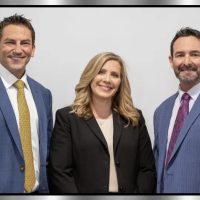Why Are You On The Property? It Matters If You’re Injured

When you go on someone’s property and you are injured, you probably think the law will treat you as equally as anybody else that would have gotten injured. In other words, it doesn’t matter who you are or why you are on the property; if you were injured because of someone else’s negligence, you will be treated the same way anybody else in the same situation would have been.
But that’s not the case, because the law will look to see why you were on the property, and that can affect how easy or how difficult that your case may be.
That doesn’t mean that the law actually cares why you are on someone’s property (buying groceries, visiting a friend, etc)—it’s more of a general inquiry, because the law puts people into different categories.
Business Invitees
Usually, we are injured on commercial property—on a business property. If you are there for the purpose of commerce, and are allowed to be there, you are what the law calls an invitee. You were, in theory, invited onto the property to conduct or potentially conduct a type of business with the property owner.
But what if we’re not on the property for business? What if we’re legally allowed on the property, but not for the purpose that we are there for? For example, what if you are a solicitor, who is not there for business, and who the business owner likely doesn’t want there, and you are injured?
When that happens, you may fall into the category of an “uninvited licensee,” or even possibly, a trespasser. If there’s any chance you may be a trespasser, the business will try to claim that you are because businesses owe very little duties of care to trespassers.
Known Trespassers
Making matters more confusing is that you can also be a “known trespasser.” This is a trespasser who is technically not supposed to be on the property, and not actually allowed on the property, but who the property owner knowingly allows to remain there. Imagine kids who skateboard in a store parking lot-they’re technically trespassers, but the property owner knows they’re there and allows them there.
Why Does it Matter Why You’re There?
All of this matters, because it is harder to sue landowners if you are classified as one category and not another. For example, it is easiest to sue a landowner when you are a business invitee.
If you are a guest at someone’s home—technically called a licensee—it is a little harder, but not impossible.
Complete and total unknown trespassers may have a much more difficult time suing.
This is why in many cases, it isn’t so much how you were injured. But who you were when you were injured.
There are more legal issues in a personal injury case than you may think. Call the West Palm Beach injury attorneys at Pike & Lustig today.
Source:
leagle.com/decision/19921331609So2d722_11148/BISHOP%20v.%20FIRST%20NAT.%20BANK%20OF%20FLORIDA



